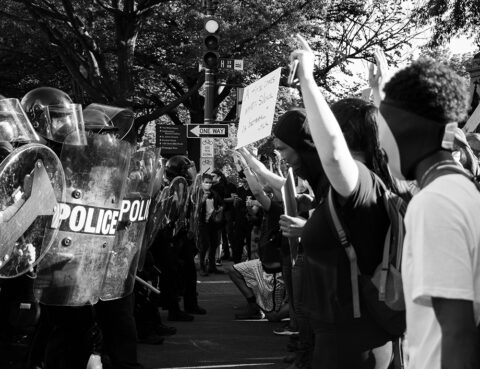42 USC 1983 refers to a specific section of the United States Code, Title 42, Section 1983. This section is commonly known as “Section 1983” and is an important federal statute that allows individuals to bring lawsuits against state and local government officials and entities for violations of their constitutional rights.
Section 1983 provides a mechanism for individuals to seek redress when their rights, as protected by the United States Constitution and federal laws, are violated by those acting under the authority of state or local government. The most common claims brought under Section 1983 involve alleged violations of the First Amendment (freedom of speech and religion), Fourth Amendment (protection against unreasonable searches and seizures), and Fourteenth Amendment (due process and equal protection).
Historical Background:
Section 1983 traces its origins to the Reconstruction Era following the American Civil War. During this period, the federal government sought to protect the civil rights of newly freed slaves and ensure that the states complied with the post-Civil War Amendments, particularly the 13th, 14th, and 15th Amendments to the United States Constitution.
The 14th Amendment, ratified in 1868, is particularly relevant to Section 1983. Section 1 of the 14th Amendment states that no state shall “deprive any person of life, liberty, or property without due process of law” or deny “equal protection of the laws.” The 14th Amendment was intended to protect the rights of all citizens and provide a constitutional basis for federal intervention when state governments violated these rights.
Purpose of Section 1983:
Section 1983 was enacted in 1871 as part of the Civil Rights Act of 1871 (commonly known as the Ku Klux Klan Act). Its primary purpose was to provide a federal remedy for individuals whose rights, as guaranteed by the Constitution and federal law, were violated by state and local government officials. The statute was designed to address issues such as racial discrimination, violations of free speech and assembly, and abuse of government authority.
The key provisions of Section 1983 state:
“Every person who, under color of any statute, ordinance, regulation, custom, or usage, of any State or Territory or the District of Columbia, subjects, or causes to be subjected, any citizen of the United States or other person within the jurisdiction thereof to the deprivation of any rights, privileges, or immunities secured by the Constitution and laws, shall be liable to the party injured.”
In simpler terms, it allows individuals to sue state and local officials who, while acting in their official capacity, violate a person’s constitutional or federal rights. This can include violations of the First Amendment (freedom of speech, religion, and assembly), the Fourth Amendment (protection against unreasonable searches and seizures), the Eighth Amendment (protection against cruel and unusual punishment), and other constitutional protections.
Significance and Impact:
Section 1983 has played a crucial role in the development and protection of civil rights in the United States. It has been instrumental in various landmark civil rights cases, including those involving desegregation, free speech, police misconduct, and prisoners’ rights. Some of the most famous Supreme Court cases in U.S. history, such as Monroe v. Pape (1961), Gideon v. Wainwright (1963), and Miranda v. Arizona (1966), have relied on Section 1983.
Over the years, Section 1983 litigation has been used to hold government officials and entities accountable for abuses of power and violations of constitutional rights. It has provided a powerful mechanism for individuals to seek redress when their rights are violated, making government actors more mindful of the Constitution’s constraints and individual liberties.
In summary, Section 1983 is a foundational law that emerged from the struggle for civil rights during the Reconstruction Era and has continued to be a cornerstone of civil rights litigation, ensuring that government officials are held responsible when they infringe upon the constitutional and federal rights of individuals.
Need Legal Assistance?
If you or someone you know has had their constitutional rights violated under Title 42, section 1983, we at Elmazi Law are here to help you. Contact us today for a free consultation. Send us a message from the form below to get started:
The amount of a payout in a lawsuit against a club bouncer can vary widely depending on various factors, including the specifics of the case, the extent of the injuries or damages suffered, and the jurisdiction in which the lawsuit is filed. There is no fixed “average payout” for such cases because each case is unique. Some of the factors that can influence the compensation in such lawsuits include:
- Severity of injuries: The more severe the injuries you’ve suffered, the higher the potential for compensation. Medical expenses, lost wages, and pain and suffering are typically factored into the damages.
- Evidence: The strength of the evidence you have to support your case is crucial. This includes witness statements, security camera footage, medical records, and other documentation.
- Bouncer’s conduct: If the bouncer’s actions are found to be particularly egregious or illegal, it may result in higher damages awarded by the court.
- Local laws: The laws and regulations governing such cases can vary by jurisdiction. Different states and countries have different rules and guidelines for personal injury cases.
- Insurance coverage: The availability of insurance coverage, such as liability insurance held by the club or the bouncer, can impact the potential compensation. Insurance policies often have coverage limits that can influence the maximum payout.
- Negotiation and settlement: Many cases are resolved through negotiation and settlement before they go to trial. The terms of the settlement, including the amount of compensation, depend on the parties involved and the specifics of the case.
Need Legal Assistance?
If you or someone you know has been a assault victim by a club bouncer or private security in Texas, we at Elmazi Law are here to help you. Contact us today for a free consultation. Send us a message from the form below to get started:
The average payout for an excessive force lawsuit can vary widely depending on numerous factors, including the specific details of the case, the jurisdiction, the extent of injuries or damages suffered, and the quality of legal representation. There is no fixed or standard amount for these settlements, as they are highly dependent on the circumstances of each individual case.
Excessive force lawsuits typically involve claims against law enforcement officers or agencies for the use of excessive or unreasonable force during an arrest or other interactions. Settlements or jury awards in these cases can range from a few thousand dollars to several million dollars, or even more in extreme cases. High-profile cases with severe injuries or wrongful deaths often result in larger payouts.
It’s important to note that excessive force lawsuits can also lead to criminal charges against the involved officers, in addition to civil suits. The outcomes of these cases can vary widely, and many factors come into play in determining the final settlement or award.
Well-Known Excessive Force Cases in Texas
Texas has had its share of high-profile cases involving allegations of excessive force by law enforcement officers. Some of the notable cases include:
- Sandra Bland (2015): Sandra Bland was a 28-year-old African American woman who died in a Waller County jail cell after a traffic stop escalated. Her arrest, captured on video, raised questions about the use of force and led to protests and national attention.
- Amber Guyger and Botham Jean (2018): While not a traditional excessive force case, the fatal shooting of Botham Jean by off-duty Dallas police officer Amber Guyger drew significant attention due to allegations of excessive use of force. Guyger entered Jean’s apartment, believing it was her own, and shot him.
- Tamir Rice (2014): Although not in Texas, the case of Tamir Rice is notable for its impact on the discussion of police use of force. Tamir Rice was a 12-year-old boy shot by Cleveland police while playing with a toy gun. The officer involved, Timothy Loehmann, had previously worked for a Texas police department.
- The Tasing of Michael Jacobs Jr. (2013): Michael Jacobs Jr., a college student, was involved in a controversial incident in the Pinehurst area of Texas. He was tased by police during a traffic stop, and the incident was captured on dashcam video.
- The Death of Marvin Scott III (2021): Marvin Scott III, a Black man, died in custody at the Collin County Jail in Texas. He was arrested for alleged marijuana possession, and his death raised questions about the use of force and the treatment of individuals with mental health issues.
These are just a few examples of cases that have drawn significant public attention and scrutiny. The outcomes of such cases can vary, but they often lead to increased awareness and discussions about law enforcement practices, use of force policies, and the need for police reform. It’s important to note that these cases represent only a fraction of incidents involving allegations of excessive force in Texas, as well as nationwide.
Need Legal Assistance?
If you or someone you know has been a victim of excessive force in Texas, we at Elmazi Law are here to help you. Contact us today for a free consultation. Send us a message from the form below to get started:
The question of whether restaurants or companies are allowed to deny services based on race is a contentious and important issue that intersects with both legal and ethical realms. In a society that strives for equality and justice, it’s essential to understand the laws and principles that govern this matter. This article explores the topic, delving into specific laws that protect against racial discrimination while considering the nuances of individual rights and freedoms.
Anti-Discrimination Laws
In many countries, including the United States, anti-discrimination laws exist to prevent businesses from denying services based on a person’s race. One of the most significant pieces of legislation in the U.S. is the Civil Rights Act of 1964. This landmark law prohibits racial discrimination in public accommodations, which includes restaurants and other businesses open to the public. Title II of the Act explicitly states that businesses cannot discriminate on the basis of race, color, religion, or national origin.
Similarly, other countries have their own anti-discrimination laws that protect against racial discrimination in public services and accommodations. The specifics may vary, but the overarching principle remains consistent: discrimination based on race is illegal.
Ethical Considerations
Beyond the legal aspects, there are strong ethical arguments against denying services based on race. Discrimination based on race perpetuates inequality, fosters division, and undermines the fundamental principles of fairness and justice. Ethical considerations emphasize the importance of treating all individuals with dignity and respect, regardless of their race.
Individual Rights vs. Public Interest
While anti-discrimination laws are clear in their intent to promote equality, some argue that businesses should have the right to refuse service to anyone for any reason, including race. They view this as an extension of individual liberty and property rights. However, this perspective clashes with the public interest in creating a fair and just society.
The legal landscape in various countries generally prioritizes the public interest in preventing discrimination over individual freedoms in the context of public accommodations. This balance ensures that businesses cannot act in a manner that perpetuates racial discrimination or division.
Religious Freedom vs. Discrimination
Another area where this question becomes complex is in cases where business owners cite religious beliefs as a reason for denying service to certain individuals. The tension between religious freedom and anti-discrimination laws has led to contentious legal battles. Courts have grappled with finding a balance between respecting an individual’s religious beliefs and protecting individuals from discrimination based on their race.
In cases like these, courts often weigh the compelling interest of preventing discrimination against the individual’s right to exercise their religious beliefs. The outcomes can vary depending on the specific circumstances and jurisdiction, making it a complex and evolving issue.
Conclusion
The question of whether restaurants or companies are allowed to deny services based on race is multifaceted, involving both legal and ethical considerations. While anti-discrimination laws clearly prohibit such practices in public accommodations, the tension between individual rights, religious freedom, and the public interest creates a complex legal landscape.
Need Legal Assistance?
If you or someone you know has been denied service by a private business in Texas, we at Elmazi Law are here to help you. Contact us today for a free consultation. Send us a message from the form below to get started:
The use of force by police officers is typically governed by a combination of laws, policies, and guidelines that vary from one jurisdiction to another. However, there are some general principles that apply to the context of the law in the United States.
- Self-Defense and Defense of Others: Police officers are generally allowed to use force, including lethal force, when they reasonably believe that their life or the life of another person is in imminent danger. This is typically referred to as the “use of force in self-defense” or “defense of others.”
- Arrest and Detention: Police officers may use force to effect an arrest or to detain a suspect when the person is resisting arrest, attempting to flee, or posing a threat to themselves or others. The amount of force used should be proportional to the threat presented.
- Prevention of Escapes: Police may use force, including deadly force, in certain circumstances to prevent a suspect from escaping custody if the suspect poses a significant risk to the safety of the public or the officers.
- Use of Non-Lethal Force: In many situations, police are trained to use non-lethal force options, such as tasers, pepper spray, batons, or physical restraint techniques, to subdue individuals who are non-compliant or pose a threat without resorting to deadly force.
- Warrant Execution: Police officers may use force when executing a search warrant or arrest warrant, but such force must be reasonable and in accordance with the law.
- Use of Deadly Force: The use of deadly force is typically subject to the highest level of scrutiny. In many jurisdictions, it is allowed only when there is an immediate threat of death or serious bodily harm to the officer or others. The principle of “reasonable belief” often applies, meaning that the officer must reasonably believe that such force is necessary to protect life.
What about in the State of Texas?
The use of force by police officers in Texas is governed by state law, as well as federal law and constitutional principles. The specific legal standards and policies regarding the use of force can vary among different law enforcement agencies in Texas, but they generally adhere to similar principles as mentioned in the previous response. Here are some key points related to the use of force by police officers in Texas:
- Texas Penal Code: The Texas Penal Code includes provisions related to the use of force by law enforcement officers. For example, it addresses self-defense, the use of force to effect an arrest, and the use of deadly force. It is important to note that Texas law allows the use of deadly force in self-defense and in defense of others in certain circumstances.
- Texas Code of Criminal Procedure: The Texas Code of Criminal Procedure provides guidelines for the use of force during arrests and detentions. It outlines the circumstances under which force may be used, such as when an individual is resisting arrest or attempting to escape lawful custody.
- Texas Commission on Law Enforcement (TCOLE): TCOLE sets standards for law enforcement training in Texas. Police officers in Texas are typically trained in the use of force according to TCOLE guidelines, which emphasize the principles of proportionality and reasonableness.
- Deadly Force: Texas law, like many states, allows for the use of deadly force by a police officer when the officer reasonably believes it is immediately necessary to protect themselves or others from an individual’s use or attempted use of deadly force.
- Standards and Policies: Individual police departments and agencies in Texas may have their own policies and procedures governing the use of force. These policies often align with state law but may also include specific guidelines for the use of less-lethal force options, de-escalation techniques, and reporting requirements.
- Oversight and Accountability: There are mechanisms in place for oversight and accountability for law enforcement officers’ use of force in Texas. This includes internal investigations, external review boards, and civilian oversight agencies, depending on the jurisdiction.
It’s important to note that legal standards and policies can change over time, and they can vary among different law enforcement agencies within the state. If you have specific questions or concerns about the use of force by police officers in Texas, it is advisable to consult the relevant statutes, regulations, and policies applicable to your area, or send us a message and we can answer any questions you may have.
Need Legal Assistance?
If you or someone you know has been a victim of police brutality in Texas, we at Elmazi Law are here to help you. Contact us today for a free consultation. Send us a message from the form below to get started:
Security is one of the main concerns when choosing an apartment complex to call home. Most of us place a great deal of trust in apartment management to provide a secure environment. But what happens when that trust is betrayed? If you have been the victim of a crime or suffered injuries within an apartment complex, you might be wondering whether you can hold the management responsible for negligent security. Let’s dive into the topic.
What Is Negligent Security?
Negligent security refers to the failure of a property owner or manager to provide reasonable security measures to protect residents and guests from foreseeable harm or criminal activities. In the context of an apartment complex, this can involve inadequate lighting, faulty door locks, lack of security cameras, or the absence of security personnel.
When Does Negligence Apply?
The concept of negligence typically implies a “duty of care” on the part of the property owner or manager. To establish negligence, the following elements generally need to be present:
- Duty of Care: The defendant owed you a duty to maintain reasonable security measures.
- Breach of Duty: The defendant failed to uphold that duty.
- Causation: The breach of duty directly resulted in your injury or loss.
- Damages: You suffered actual damages as a result (such as medical expenses, lost wages, or emotional distress).
Foreseeability: A Key Component
One of the critical factors in determining negligence is foreseeability. Was the criminal act foreseeable and, therefore, preventable? If an apartment complex is located in a high-crime area and yet lacks basic security measures, the likelihood of proving that the crime was foreseeable increases. Prior incidents of crime in the area or within the complex itself can also bolster the case for foreseeability.
Case Examples
Courts have found apartment complexes liable for negligent security in various instances. In one case, a resident was attacked in a parking lot that had been the site of numerous prior assaults. The court determined that the complex had failed to provide adequate lighting and security patrols, thereby neglecting its duty of care to residents.
In another case, a tenant was assaulted due to a faulty lock on a communal entrance. The court found that the complex was aware of the defect but had failed to rectify it, resulting in the breach of its duty of care.
Steps to Take If You’re a Victim
If you believe you have been a victim of negligent security in an apartment complex, consider the following steps:
- Consult a Lawyer: Contact an attorney who specializes in premises liability or personal injury law.
- Document Everything: Take photographs, collect witness statements, and maintain a record of correspondence with the management.
- Medical Records: Keep detailed records of any medical treatments related to the incident.
- File a Report: Notify local law enforcement and file a formal report.
Summary
It is possible to sue an apartment complex for negligent security, but each case is highly fact-specific. A successful lawsuit typically involves demonstrating that the complex had a duty of care, failed in that duty, and that this failure resulted in foreseeable harm.
Need Legal Assistance?
If you or someone you know has been a victim of negligent security by an an apartment complex in Texas, we at Elmazi Law are here to help you. Contact us today for a free consultation. Send us a message from the form below to get started:
Getting bitten by a police K9 is not only painful but can also be emotionally traumatizing. It’s crucial to know how to react correctly to minimize physical injury and legal complications. Here is a step-by-step guide on what to do in such a situation:
Immediate Steps
1. Do Not Resist
Resisting may result in further aggression from the K9 or the police officers. Keep your hands visible and follow the commands from law enforcement.
2. Inform the Officer
Immediately tell the police officer in charge of the dog that you have been bitten. This is crucial for documenting the event and is the first step in medical treatment.
3. Seek Medical Attention
Even if the injury seems minor, it’s crucial to get medical care as soon as possible. Dog bites can lead to infections or other complications if not treated promptly.
Document the Incident
4. Get the Details
Write down the badge numbers and names of all police officers present, as well as any other identifying details (patrol car numbers, location, etc.).
5. Collect Witness Information
If there are any eyewitnesses, gather their contact information for future reference.
6. Take Photos
If possible, take photographs of your injuries, the location where the incident occurred, and any other relevant details (like the K9 unit vehicle).
Legal Steps
7. File a Report
File a formal police report about the incident. Even if you’re under arrest or detained, you have the right to document the incident through official channels.
8. Consult an Attorney
Contact an attorney who specializes in police misconduct or personal injury cases. An experienced lawyer can help you understand your rights and what compensation you may be entitled to.
9. Maintain Records
Keep all medical records, legal documents, and any other paperwork related to the incident. These could be essential for any legal action you may take later.
Psychological Care
10. Seek Counseling
A dog bite, particularly from a police K9, can be a traumatic event. Consider seeking psychological counseling to cope with any emotional or psychological after-effects.
Follow-Up
11. Confirm Rabies Vaccination
Confirm with the police department that the K9 is up-to-date on all vaccinations, including rabies. This information is crucial for your healthcare provider to decide on your course of treatment.
12. Watch for Symptoms
Keep an eye on the bite wound and be alert for signs of infection such as redness, swelling, or increased pain, as well as general symptoms like fever or fatigue.
Remember, each situation is unique, and it’s always advisable to consult professionals for both medical advice. We at El Mazi Law can help you seek justice if you are bitten by a police K-9.
Need Legal Assistance?
If you or someone you know has been bitten by a police k-9 in Texas, we at Elmazi Law are here to help you. Contact us today for a free consultation. Send us a message from the form below to get started:
Police brutality is a critical and increasingly visible issue in the United States. While most law enforcement officers are committed to maintaining public safety and following the law, instances of police misconduct do occur. If you believe you’ve been a victim of police brutality in Texas, you may feel overwhelmed, confused, and unsure of how to proceed. Although I am not a legal expert, this blog aims to provide some guidance on the steps you can take to protect your rights and seek justice.
Immediate Steps to Take
1. Seek Medical Attention
Your health is your first priority. If you’ve been physically harmed, it’s essential to seek medical attention as soon as possible. Medical professionals can evaluate and document your injuries, providing a crucial piece of evidence should you decide to pursue legal action.
2. Gather Evidence
If circumstances permit, try to collect as much evidence as possible at the scene. This includes:
- Names and badge numbers of the officers involved
- Contact information for any witnesses
- Photos or video footage of the incident or your injuries
3. Stay Calm and Compliant
While it may be difficult, remaining calm is crucial. Even if you feel you’re being mistreated, resisting arrest could result in additional charges against you. Compliance does not admit guilt; it simply minimizes further potential harm and legal complications.
Legal Steps to Consider
1. File a Complaint
Report the incident to the internal affairs division of the police department or other relevant oversight bodies as soon as you can. This step is vital for officially getting your allegations on record. Procedures can vary depending on the jurisdiction, so make sure to find out the specific process for your area.
2. Consult an Attorney
Finding a lawyer experienced in civil rights or police misconduct cases can be invaluable. They can guide you through the complexities of the legal system and help you understand your options, which may include filing a civil suit.
3. Preserve All Evidence
Hold onto any and all documentation related to the incident—this includes medical records, photos of injuries, and witness statements. Your attorney will need these to help build your case.
4. Follow Legal Advice
Your attorney may suggest additional steps like filing complaints with state or federal oversight organizations or proceeding directly to a lawsuit. Make sure to follow their advice closely for the best chance of achieving a favorable outcome.
Other Considerations
1. Contact the Media and Advocacy Groups
Public attention can sometimes put pressure on authorities to act responsibly. However, be sure to consult with your attorney before speaking to the media or advocacy groups as it can also complicate your legal situation.
2. Community Support
There are numerous community organizations and non-profits that offer resources, legal aid, or counseling for victims of police brutality. Don’t hesitate to reach out for additional support.
3. Ongoing Legal Proceedings
Keep abreast of any ongoing criminal cases against you, especially if they relate to the incident in question. Your attorney can guide you through managing both the civil and criminal aspects simultaneously.
Conclusion
If you believe you’ve been a victim of police brutality in Texas, taking prompt action and securing legal advice can significantly impact your ability to seek justice and hold the responsible parties accountable. We at El Mazi Law specialize in protecting your civil rights and making sure you receive justice if you are victimized by police.
Need Legal Assistance?
If you or someone you know has been a victim of police brutality, we at Elmazi Law are here to help you. Contact us today for a free consultation. Send us a message from the form below to get started:
It a nutshell…No.
In the realm of legal battles, not all heroes wear capes; some wear suits and wield their knowledge of the law as their weapon. These legal warriors are none other than contingency attorneys. In a world where justice can seem elusive, these attorneys stand as beacons of hope for individuals who may otherwise be unable to access legal representation due to financial constraints. This blog post sheds light on the role and significance of contingency attorneys in our legal system.
Understanding Contingency Attorneys
A contingency attorney is a legal professional who takes on cases on a contingency fee basis. This means that they agree to represent clients without charging any upfront fees. Instead, the attorney’s fee is contingent on the outcome of the case; they receive a percentage of the compensation awarded to the client if the case is successful. If the case is unsuccessful, the attorney generally does not receive a fee. This unique payment arrangement allows individuals with limited financial resources to pursue justice and seek legal remedies they might otherwise have been unable to afford.
Breaking Down the Benefits
- Access to Justice: One of the primary benefits of contingency attorneys is the increased access to justice they provide. Legal proceedings can be prohibitively expensive, deterring many individuals from pursuing their rightful claims. Contingency arrangements level the playing field, allowing even those with modest means to stand up against powerful entities.
- Motivation for Success: Contingency attorneys have a vested interest in the success of their clients’ cases. Their fees are directly tied to the outcome, which means they are highly motivated to achieve favorable results. This motivation often leads to dedicated and thorough representation, as the attorney’s success aligns with the client’s success.
- Risk Mitigation: By taking on cases on a contingency basis, these attorneys shoulder a significant portion of the financial risk associated with litigation. Clients can pursue justice without worrying about upfront legal fees or expenses. This arrangement also encourages attorneys to carefully evaluate the merits of a case before agreeing to represent a client.
- Incentive for Justice: Contingency attorneys often work on cases that involve seeking compensation for personal injuries, medical malpractice, workplace discrimination, and more. By offering their services without immediate financial burden, these attorneys give victims a chance to seek fair compensation, holding wrongdoers accountable for their actions.
Challenges and Considerations
While the role of contingency attorneys is undoubtedly significant, it’s important to note that not all cases are suitable for this fee arrangement. High-stakes and complex cases might require a different approach due to the uncertainty of the outcome and the potential investment of time and resources.
Additionally, there can be concerns about the potential for conflicts of interest if the attorney’s fee is tied to the compensation amount. It’s essential for both the attorney and the client to have a clear understanding of the fee arrangement and potential implications.
Conclusion
Contingency attorneys are more than legal representatives; they are champions of justice who enable individuals to seek resolution, compensation, and accountability in the face of adversity. Their commitment to providing access to justice, coupled with their motivation to secure positive outcomes, makes them an integral part of our legal system. At Elmazi Law, we as a firm will continue to advocate for the rights of the underrepresented and the marginalized to remind us that justice is not just a lofty ideal, but a tangible reality attainable for all.
Need Legal Assistance?
If you or someone you know are in need of a civil rights attorney, we at Elmazi Law are here to help you. Contact us today for a free consultation. Send us a message from the form below to get started:
When we see security guards at shopping malls, events, or other venues, we often feel reassured that our safety is being prioritized. However, what happens when the people entrusted with maintaining public order become the violators of your safety? If you’ve been assaulted by a security guard in the state of Texas, it’s essential to understand your rights and the steps you should take to seek justice.
Step 1: Ensure Immediate Safety
Before anything else, remove yourself from the dangerous situation and seek a safe location. This could be inside a store, with a crowd, or any area where you feel the risk of further assault is minimized.
Step 2: Seek Medical Attention
Your health and well-being are the top priorities. Even if you think your injuries are minor, it’s essential to seek medical attention immediately. Not only is this critical for your health, but medical records also serve as crucial evidence when proving the extent of your injuries.
Step 3: Report the Incident
In the state of Texas, it’s vital to report the assault to local law enforcement as soon as possible. Make sure to give a detailed account of the incident, and ask any witnesses to do the same. Remember to obtain a copy of the police report, as this will be essential when making a claim or filing a lawsuit.
Step 4: Collect Evidence
Documentation is critical when proving your case. In addition to medical records and the police report, gather any other evidence that can help your claim:
- Photographs of injuries
- Surveillance footage
- Witness contact information
- Any other documents related to the incident (employment records for the security guard, event tickets, etc.)
Step 5: Consult an Attorney
Given the complexities surrounding assault cases—especially involving authority figures like security guards—it’s strongly advised that you consult an attorney experienced in personal injury law in Texas. We at El Mazi Law can guide you through the legal process, from filing a claim to possibly taking your case to trial.
Possible Legal Recourses
Criminal Charges
In Texas, assault is a criminal offense that can range from a misdemeanor to a felony, depending on the severity of the act and injuries incurred. Law enforcement will typically handle the criminal aspect of the case.
Civil Litigation
As a victim, you may also have grounds for civil action against the security guard or their employer. Civil lawsuits aim to compensate the victim for damages, such as medical expenses, lost wages, and emotional distress.
Regulatory Action
Security guards in Texas are often licensed by the Texas Department of Public Safety’s Private Security Bureau. Filing a complaint against the offending guard may lead to an investigation and possible revocation of their license.
Conclusion
If you’ve been assaulted by a security guard in Texas, it can feel like a deeply unsettling breach of trust. However, know that you have legal rights and avenues for redress. The most important first step is to consult a qualified attorney who can guide you through this complex legal journey and help you seek the justice and compensation you deserve.
Need Legal Assistance?
If you or someone you know has been assaulted by a security guard in Texas, we at Elmazi Law are here to help you. Contact us today for a free consultation. Send us a message from the form below to get started:











